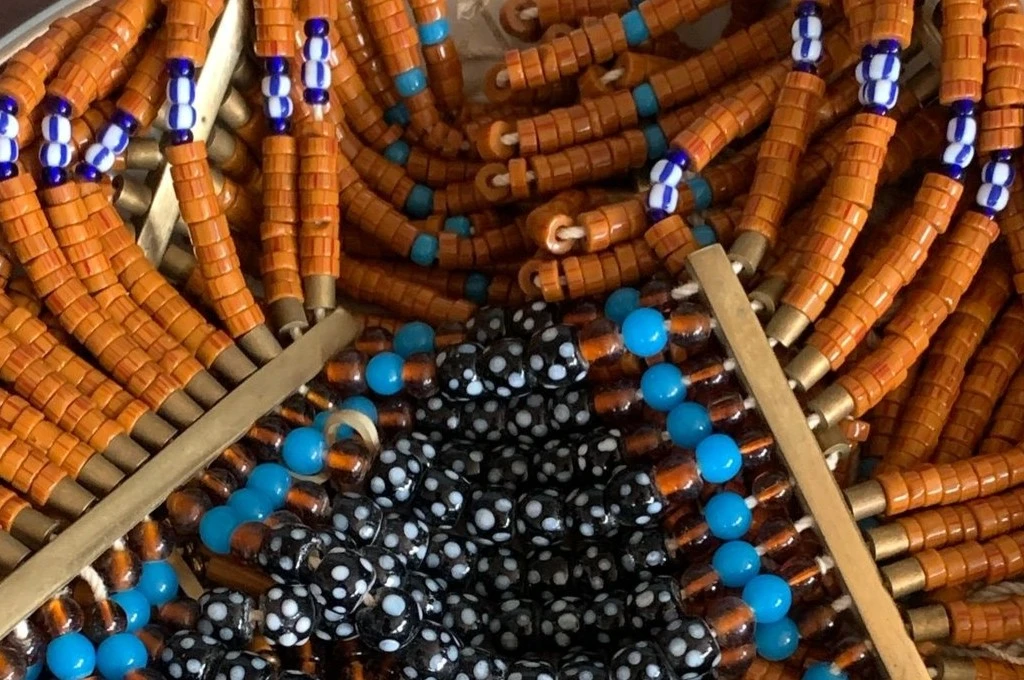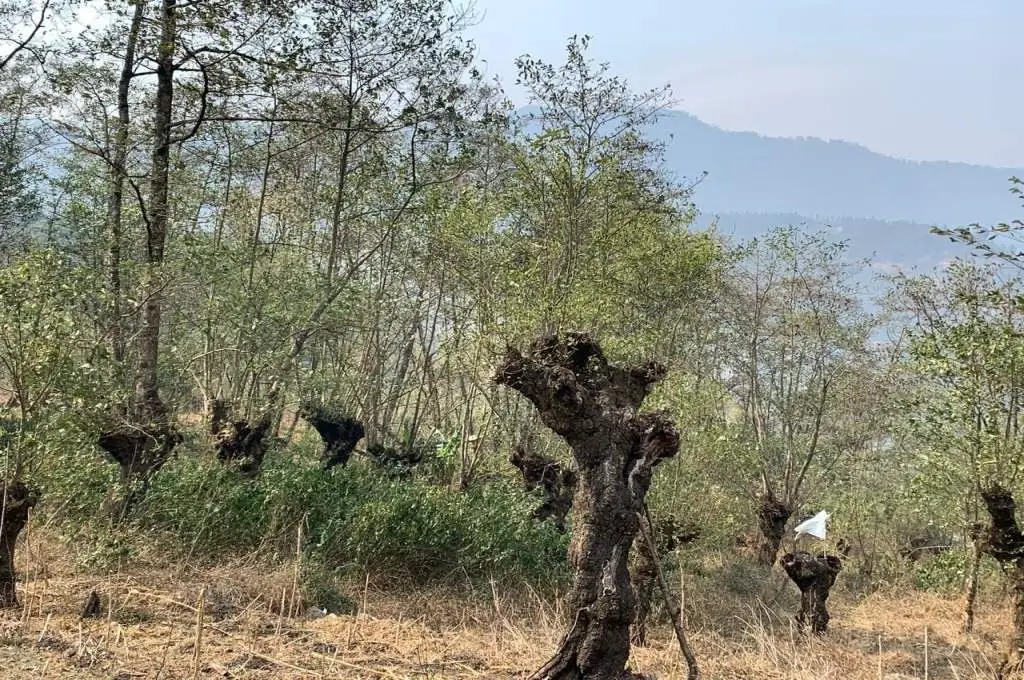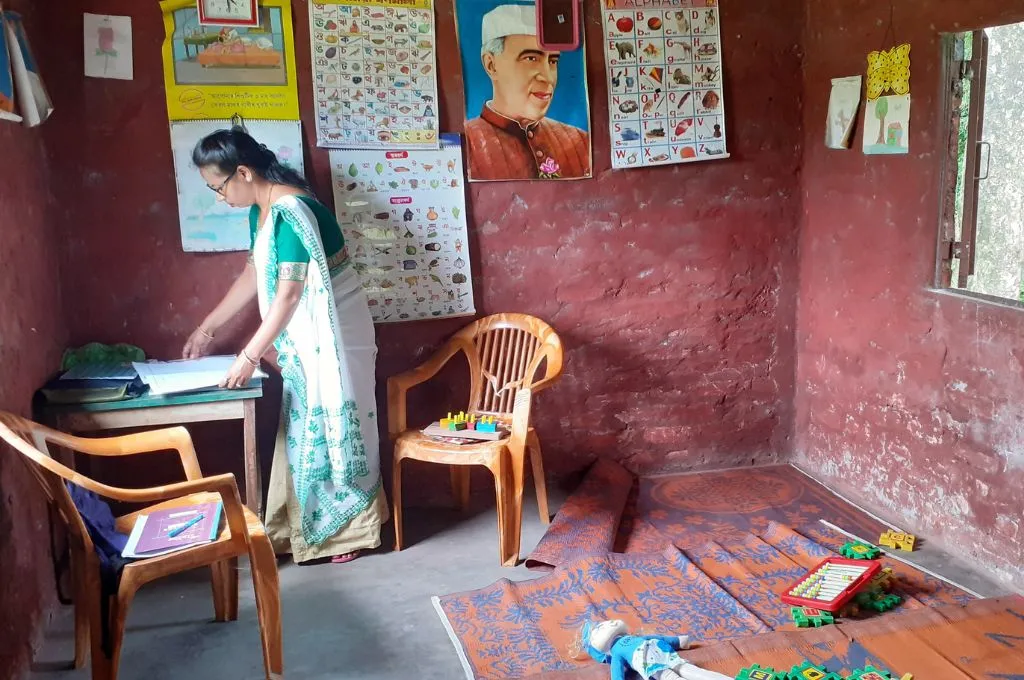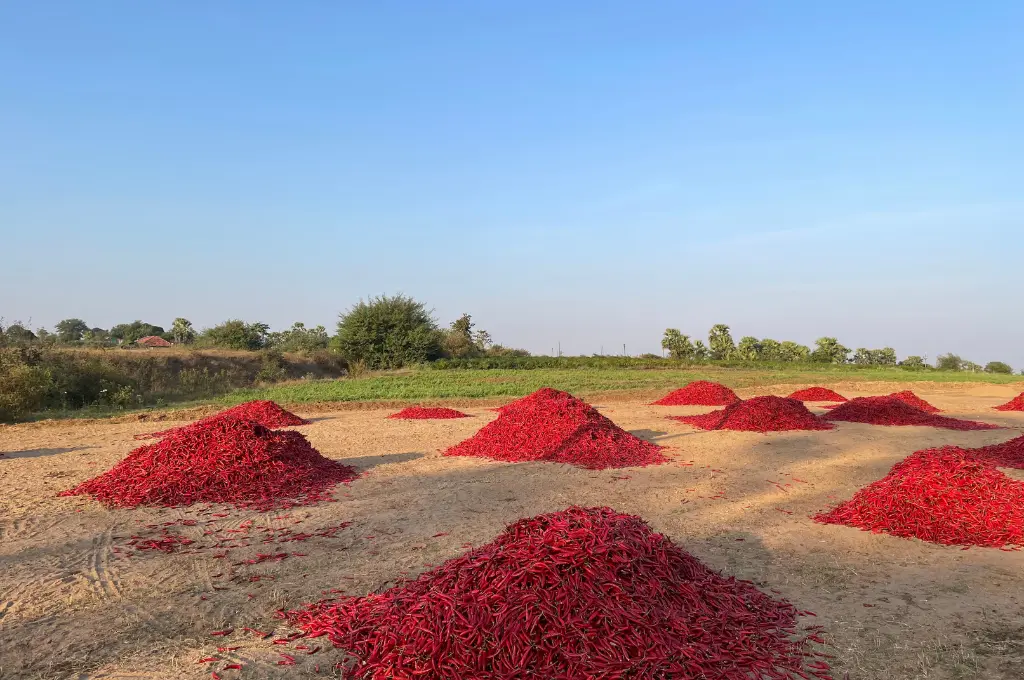READ THIS ARTICLE IN
The fashion keeper of Choroti Pahar: Why women need a saree shop
I live with my family in Choroti Pahar village in Rajasthan’s Alwar district, where we have 0.75 bigha (0.47 acre) of land. Until three years ago, we would survive on my income from agriculture and dairy farming and my husband’s wage. But he would keep losing jobs and the income from farming alone wasn’t enough because we also had to pay for my son’s education.
I am also a member of a self-help group formed by Ibtada, a nonprofit based in Alwar. In 2020, I took a loan of INR 10,000 from the group and started my shop. The women around me said that I should keep sarees, blouses, and petticoats and they would buy those from me instead of going all the way to saree shops in Alwar town.
It used to be difficult for women to travel outside. Even if their husbands had a motorcycle, the women would have to depend on them getting time off from work. Public transport was limited and expensive. Buying from my shop saved them the INR 50–100 that they would spend on travel.
I started small with only a dozen sarees; as I saw the demand increase, I took this up to 20. I ask the women what they want before my son and I go to Alwar to make the purchase. Initially, they would only ask for sarees within the range of INR 250–300, but now they also buy fancier sarees from me. When I don’t understand a particular demand made by a customer, I ask them to write a note for me that I can show to the shopkeeper in Alwar.
I have also started keeping toys because mothers often come with their children who demand these; we are also planning to stock snacks and soft drinks that children like. My son keeps saying that sarees are cheaper in Delhi and we should make a trip there. When we have enough money, we’ll get sarees from Delhi.
Muniya Devi is a saree seller and farmer in Rajasthan’s Choroti Pahar village.
—
Know more: Learn how women farmers in Osmanabad are diversifying their agri-allied businesses.



